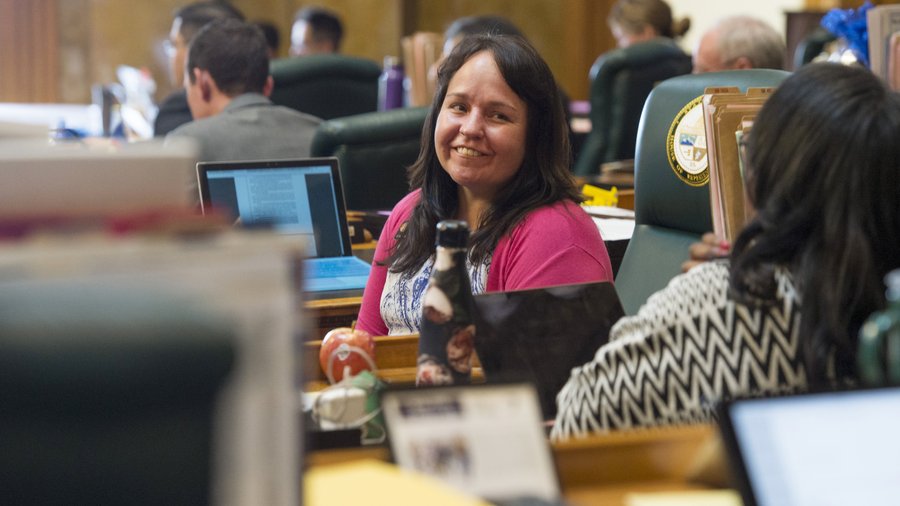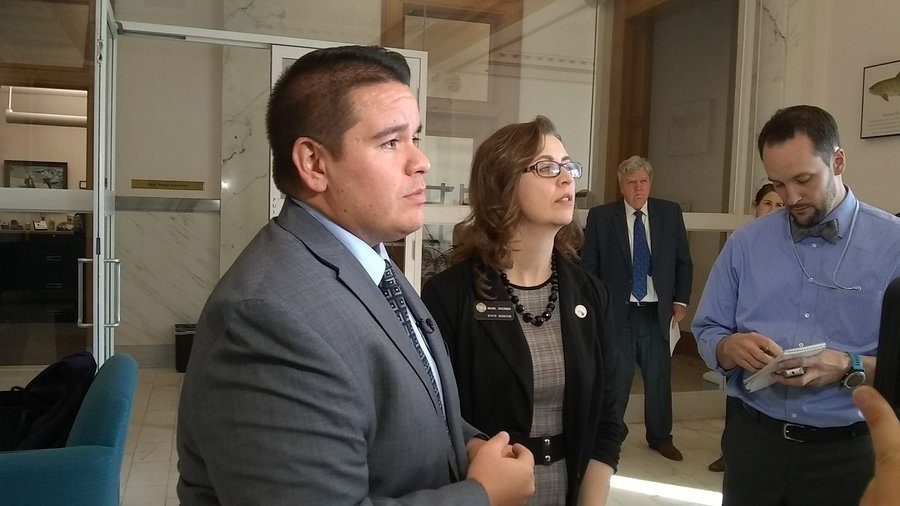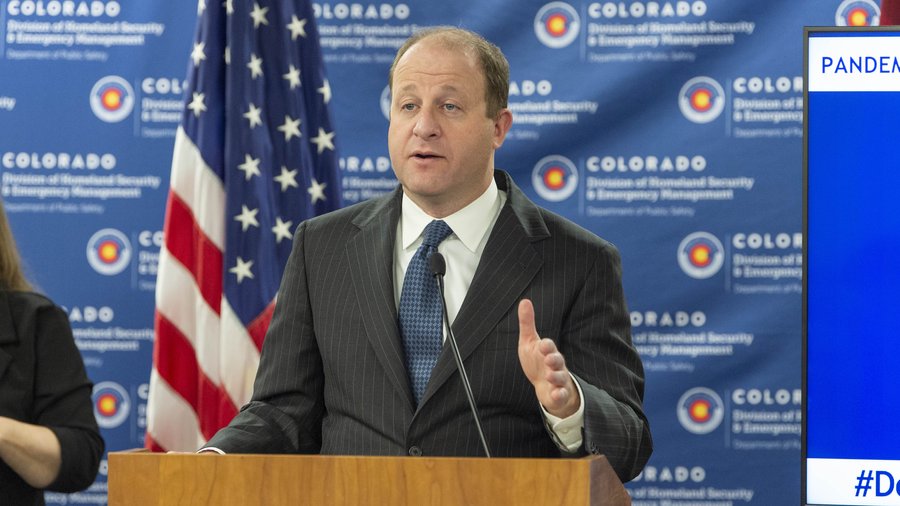Gov. Jared Polis on Thursday signed into law two bills aimed at calling out and punishing companies that pollute Colorado’s air and water, but he also vetoed an opioid-treatment bill that he argued could have raised the cost of health insurance.
The Democratic governor continues to work his way through bills passed in the abbreviated second portion of the coronavirus-interrupted 2020 legislative session, and many of the bills most concerning to business leaders, including a paid-sick-leave mandate and a whistleblower-protection bill, remain on his to-do list. But just before the three-day Independence Day weekend, he addressed several measures that could affect employers in other ways.
Maybe the most direct impact to companies could come from House Bill 1143, sponsored by Democratic Reps. Dominique Jackson of Aurora and Serena Gonzales-Gutierrez of Denver, which raises maximum fines against air and water polluters by as much as 400%. Current Colorado law sets the maximum fine for most air-quality violations at $15,000 per day and most water-quality violations at $10,000 per day; the new law raises those limits to $47,357 a day and $54,833 per day, respectively, with potential jail time.
Jackson originally pushed the bill, introduced in mid-January, because she said that pollution disproportionately affects low-income and minority communities, and HB 1143 originally included a provision, later removed, that created an environmental-justice ombudsman’s office. But when the Legislature returned, she argued during House debate on June 4 that the link between exposure to pollution and severe respiratory illness meant that the legislation had a direct link to coronavirus.
“Our fines were so low in the state of Colorado that companies could write them into their business plan because it was beneficial to pay them rather than to clean up,” sponsoring Sen. Faith Winter, D-Westminster, added during the bill-signing ceremony Thursday.

HB 1265, sponsored by Democratic Reps. Adrienne Benavidez of Adams County and Alex Valdez of Denver, targets emitters of air toxics specifically, but its aim, after being pared down during the session, is education rather than fines. It requires that companies emitting certain levels of hydrogen cyanide, hydrogen sulfide or benzene inform surrounding communities when unauthorized emissions occur and conduct the outreach campaigns in both English and Spanish.
Though no one called out the Suncor refinery in Commerce City by name, it was clear that sponsors, all of whom represented that city or northern Denver, had its history of hydrogen-cyanide emissions in mind when crafting HB 1265, which passed on largely partisan votes. Sponsoring Sen. Dominick Moreno, D-Commerce City, said the bill was developed in concert with the resident of his city and with those in Denver’s Elyria, Swansea and Globeville neighborhoods who have suffered from excess emissions.
“This is a first step to make people more aware of what’s going on,” Benavidez said, noting that most of the regulatory aspects of the bill were stripped from it in order to concentrate efforts on passing coronavirus-related legislation. “It’s not everything we wanted, but we’re going to continue to push for that.”

Polis, however, pushed back on fellow Democrats and vetoed HB 1085, sponsored by Democratic Reps. Chris Kennedy of Lakewood and Leslie Herod of Denver, which would have required insurers to cover nonpharmacological treatment for opioid addiction. The bill came from a study committee looking into how to treat addictions and disorders in a better way, and sponsors said that insurance coverage of opioid alternatives often includes barriers to safer treatment, increasing the chances of future overdoses.
Polis said in his veto letter would have required a number of positive steps, including the indefinite extension of current opioid prescription limits and the extension of a requirement that health-care providers query a state prescription-management database. However, Polis warned legislators in an April 1 letter that he would not sign any more insurance mandates that held the possibility of raising premium costs during a time of economic distress, and he reiterated in Thursday’s veto letter that HB 1085 would do just that.
“The treatment mandate in the bill includes a minimum of six annual physical therapy visits, six annual acupuncture visits, six annual occupational therapy visits, and six annual chiropractic visits with cost sharing that is no greater than that charged for a primary care visit for non-preventive services,” Polis wrote. “Health insurance carriers estimate this will add between $22M to $38M to the cost of premiums.”
Revenue from most recent fiscal year
| Rank | Prior Rank | Company name |
|---|---|---|
1 | 1 | Denver Metro Convention & Visitors Bureau Inc. dba Visit Denver |
2 | 2 | Colorado Hospital Association |
3 | 3 | Denver Area Better Business Bureau Inc. |





